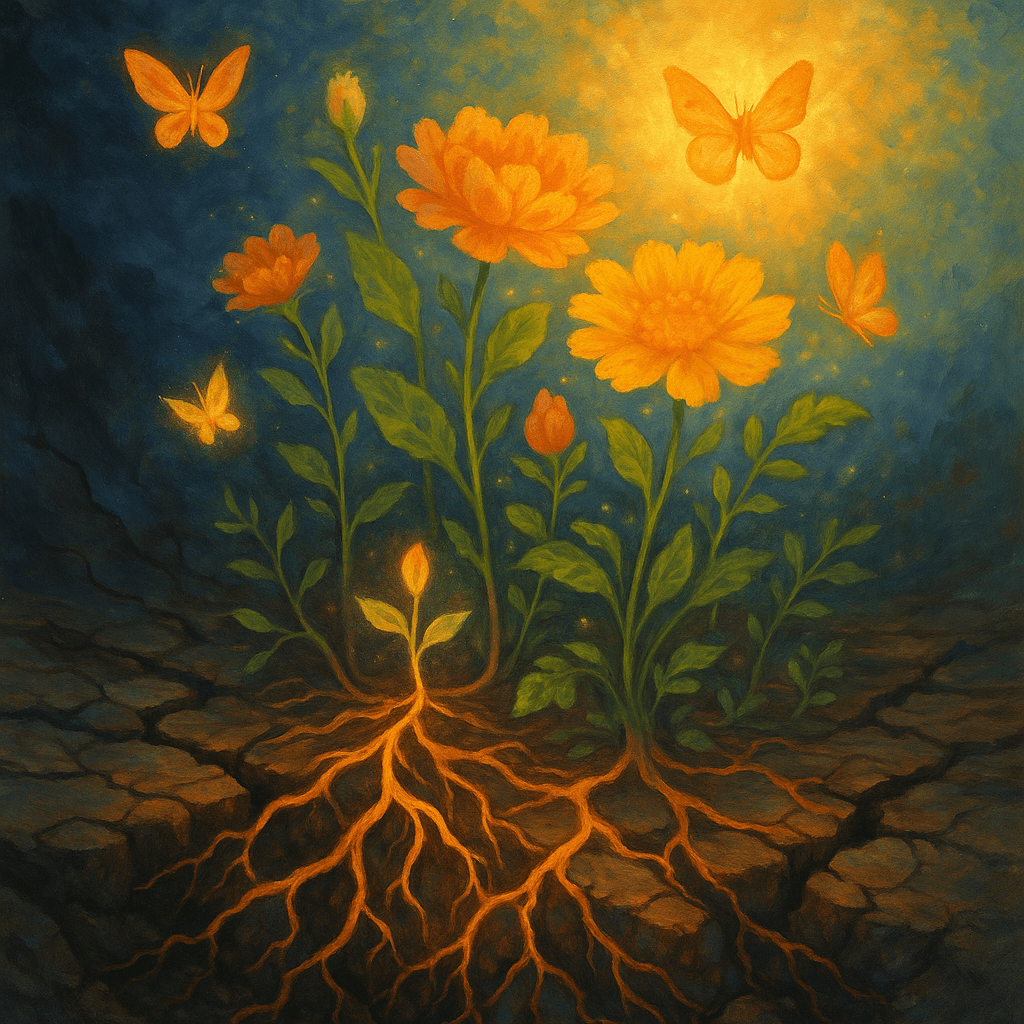Growth Through Discomfort: The Seeds of Transformation

Transformation ripens in the soil of discomfort. — bell hooks
—What lingers after this line?
One-minute reflection
Why might this line matter today, not tomorrow?
The Role of Discomfort in Personal Change
bell hooks’ insight draws our attention to a universal truth: authentic transformation rarely emerges from comfort. Much like seeds require the pressure and disruption of soil to germinate, individuals often experience profound growth during periods of unease. Discomfort, hooks suggests, isn't an obstacle but rather fertile ground where new identities and perspectives can form.
Historical Examples of Transformation
Throughout history, times of hardship have consistently served as catalysts for social progress and individual evolution. Consider the American Civil Rights Movement: countless activists, including hooks herself, endured discomfort on the front lines to nurture societal transformation. Their willingness to embrace discomfort opened pathways toward justice and equality—demonstrating how adversity and growth intertwine.
Learning and Growth in Educational Theory
Building on this, educational theorists like Paulo Freire argue that meaningful learning is inherently unsettling. In his seminal work, *Pedagogy of the Oppressed* (1970), Freire maintains that critical consciousness arises when learners are challenged to question deeply held beliefs. This intellectual discomfort prompts transformative reflection, pushing individuals to transcend old limitations.
Psychological Perspectives on Discomfort
From a psychological standpoint, discomfort signals areas ripe for personal development. Therapists often encourage clients to confront painful emotions or memories, recognizing that breakthroughs occur by working through unease. This process mirrors hooks' metaphor: discomfort paves the way for insights, fostering resilience and self-awareness as new ‘growth’ emerges.
Embracing Discomfort to Foster Resilience
Ultimately, hooks’ statement invites us to rethink our relationship with discomfort. Instead of resisting difficult experiences, we can approach them as opportunities for transformation. Whether navigating societal upheaval or personal setbacks, choosing to dwell in the ‘soil’ of discomfort enables us to ripen—to evolve—with wisdom and purpose. In this way, transformation and discomfort become intertwined pathways to a fuller, more authentic self.